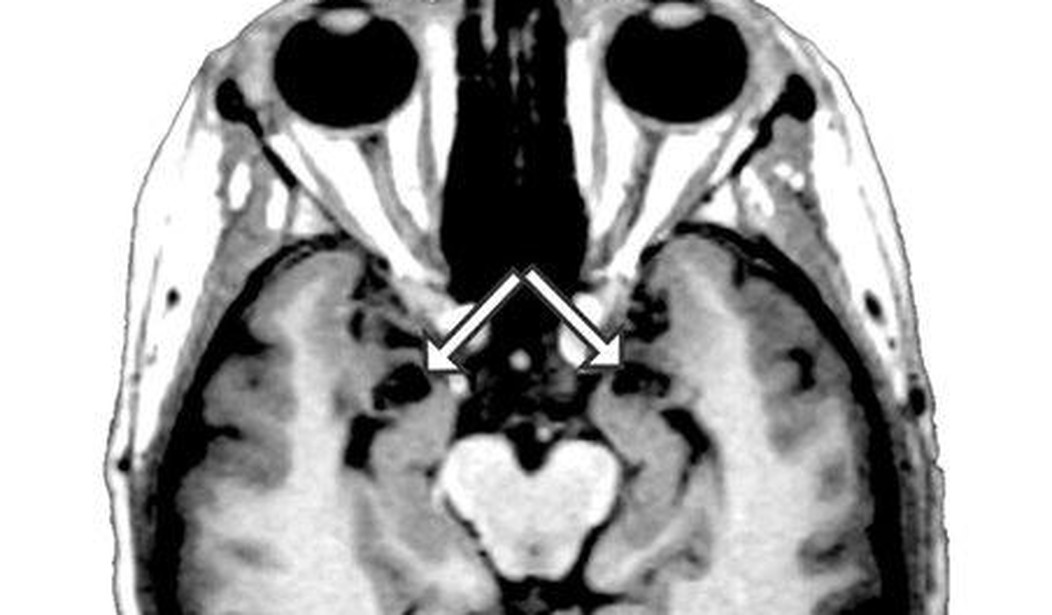The way that the pandemic was handled took people’s jobs, businesses, and, in some cases, lives. Children missed the things that are supposed to be normal parts of growing up, we lost sight of each other’s faces, and we became isolated from one another. Important medical visits were put off. Society was divided into those who were convinced that COVID-19 was the end of the world and those who were equally convinced that the issue was mostly hype.
We were able to see in real time the effects that the extended lockdown had on people’s emotional well-being, especially in children and teens. And now there is evidence that the actual structures of young brains were also impacted.
Researchers at Stanford have released a study, “Effects of the COVID-19 Pandemic on Mental Health and Brain Maturation in Adolescents: Implications for Analyzing Longitudinal Data.”
According to the Washington Post, the original purpose of the study was to track brain development among a group of teens to see if there were gender disparities in depression. The study required a series of brain scans over a period of years. The study was interrupted by the lockdowns. When the scans resumed, researchers discovered not only heightened depression and anxiety, but, in essence, that the teens’ brains had physically aged by approximately three years.
Here is the abstract from the study:
Background
The COVID-19 pandemic has caused significant stress and disruption for young people, likely leading to alterations in their mental health and neurodevelopment. In this context, it is not clear whether youth who lived through the pandemic and its shutdowns are comparable psychobiologically to their age- and sex-matched peers assessed before the pandemic. This question is particularly important for researchers who are analyzing longitudinal data that span the pandemic.
Methods
In this study we compared carefully matched youth assessed before the pandemic (n=81) and after the pandemic-related shutdowns ended (n=82).
Results
We found that youth assessed after the pandemic shutdowns had more severe internalizing mental health problems, reduced cortical thickness, larger hippocampal and amygdala volume, and more advanced brain age.
Conclusions
Thus, not only does the COVID-19 pandemic appear to have led to poorer mental health and accelerated brain aging in adolescents, but it also poses significant challenges to researchers analyzing data from longitudinal studies of normative development that were interrupted by the pandemic.
This study involves one group of teenagers. There is really no way of quantifying the cumulative effect the lockdowns and increased stress had on the brains of teens across the nation. Whether or not their brains return to normal over the course of time has yet to be determined, and we can only wait and see how this problem follows them into adulthood.
Related: Dr. Fauci Can’t Remember Basic Facts About the Pandemic, yet He Still Shows up on TV
Everyone was locked down. Everyone was isolated. Everyone was frustrated, and many were terrified. But what is clear is that people who were tasked with serving the public took advantage of a health problem — a danger to some, but not to all — to use and manage that public. They used the pandemic to flex their muscles–to say where we could go, where we could stand, when we could shop, and whom we could see. And to push a vaccine that has proved worthless to many, and is being shown to have been possibly deadly to some. And now we see yet another group of people who suffered in a way no one anticipated.
To this day, I still see the people who have found a sense of identity in COVID. I see them driving in their cars with the windows rolled up, wearing their masks. My wife is still cornered by friends and acquaintances asking her when the next strain is due and how bad will it be, and wanting to know when they can get their next booster. Fearing COVID and living forever in the shadow of the pandemic has become a part of their lifestyles. And even still, wearing a mask is still seen among some as an indicator of intellectual enlightenment.
And now, not only do we have evidence of the emotional and psychological damage done by the panic, but the actual neurological damage that has been inflicted on our young people. I’d like to hear Fauci’s response to this as well as Joe Biden’s. On second thought, at this point, I really don’t care. There’s nothing any of them can say beyond “I’m sorry and I quit.” Or “That’s a question for my legal counsel.”










Join the conversation as a VIP Member